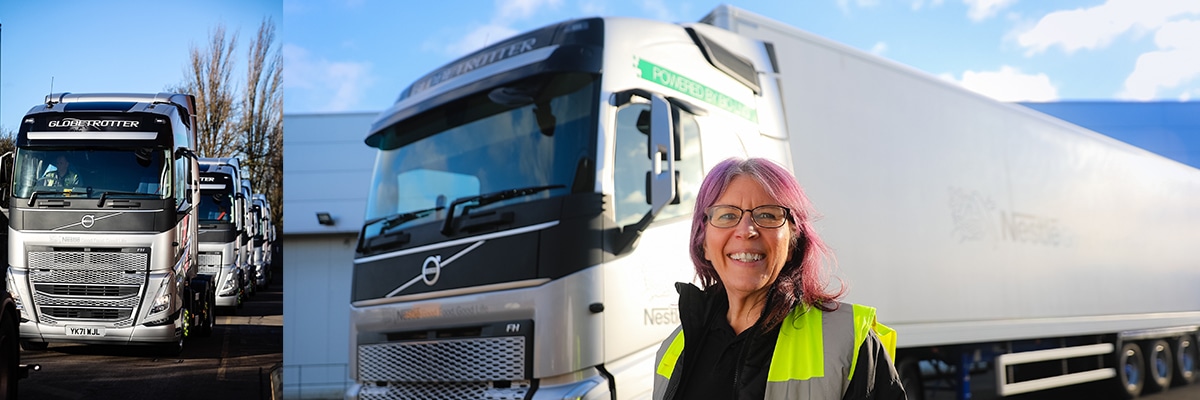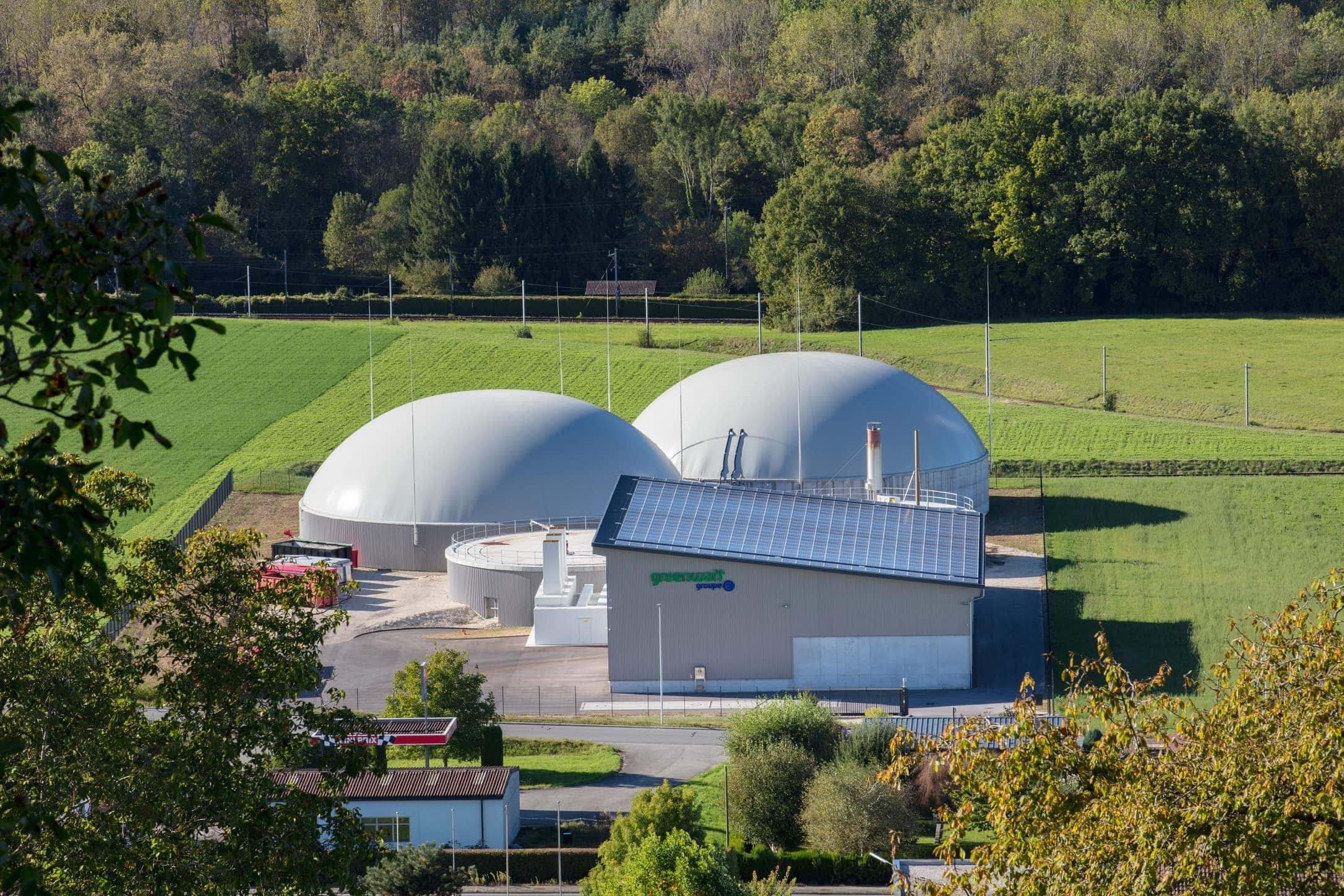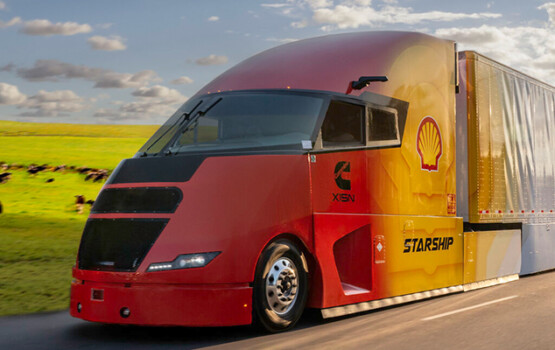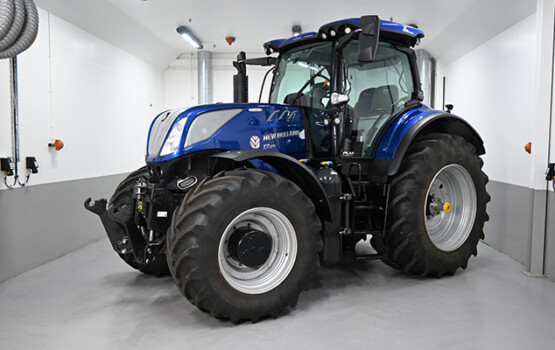Portal for more climate-friendly mobility

Truck fleet converted to bio-LNG
In the UK and Ireland, the food multinational Nestlé will in future use bio-LNG-powered trucks for its logistics, thus massively reducing CO2 emissions.
 The largest agricultural biogas plant in Switzerland is located on a Nestle Waters property right next to the Henniez bottling plants and is operated by the energy provider Groupe E Greenwatt. Source: Nestlé/Henniez
The largest agricultural biogas plant in Switzerland is located on a Nestle Waters property right next to the Henniez bottling plants and is operated by the energy provider Groupe E Greenwatt. Source: Nestlé/Henniez
For Nestlé S.A. sustainability and the circular economy have not simply been considered good form for years, but are an important part of the corporate strategy of the world’s largest food company based in Vevey (Canton of Vaud). Switzerland’s largest agricultural biogas plant has been in operation since 2016 in Henniez (Canton of Vaud), the commune where the mineral water of the same name, which is known throughout Switzerland, is sourced, thus helping Nestlé to protect the valuable mineral water from impurities and emit 3,000 fewer tonnes of CO2 per year.
The food and beverage manufacturer takes advantage of the benefits of a circular economy and sustainable energy – not only in Switzerland, but also in the UK and Ireland, which is why the company relies on LNG-powered trucks for its logistics there. By converting three-quarters of its truck fleet from diesel to liquefied biogas, known as bio-LNG or LBG, Nestlé is now able to deliver its goods with up to 95% lower CO2 emissions. This is an important step towards Nestlé’s commitment to achieve net zero emissions by 2050.
Nestlé had already been looking for solutions in the UK since 2017 to significantly reduce emissions within its transport and logistics network. The company ultimately decided to switch to bio-LNG, as firstly this is a renewable fuel and secondly, the liquefied biogas can store a significantly higher energy content, thus helping the long-distance trucks to achieve the required ranges.
However, the switch to bio-LNG took several years due to the complexity of the supply chains. “Operating a network that ensures the timely and efficient transportation of goods across the country while reducing our environmental footprint is a complicated task,” explains Sally Wright, Head of Delivery at Nestlé UK and Ireland. “The refuelling options of bio-LNG, the weight of the transported goods and the limited range of alternative fuels required careful planning of each individual journey.”
 One of Nestlé’s LNG trucks, which are virtually CO2-neutral on the road thanks to sustainable bio-LNG in the tank. Source: Nestlé
One of Nestlé’s LNG trucks, which are virtually CO2-neutral on the road thanks to sustainable bio-LNG in the tank. Source: Nestlé
The switch to bio-LNG for Nestlé’s own fleet is only the first step towards a more ecological footprint. The logistics team is already working with shipping partners to bring about a switch to alternative engines in this area as well. At the same time, efforts are being made to increase the delivery capacity of individual trucks, as every truck which can be taken off the road also means fewer CO2 emissions. “Working with several partners and industry pays off for us, as this is the only way we were able to get these bio-LNG-powered trucks on the road,” Wright continues. “I am particularly pleased that even more of them will soon be able to drive on the roads in a virtually climate-neutral manner!” (pd/jas, 5 May 2022)

Driving instructor Lee Skelton teaches Nestlé UK and Ireland chauffeurs more tricks to be as efficient as possible in their LNG Volvos. Source: Nestlé
You might also be interested in

Shell Starship on record hunt
